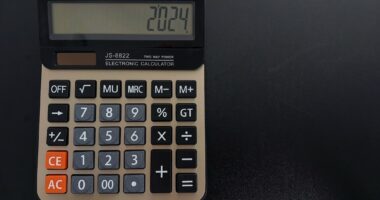Decentralized Autonomous Organizations, commonly referred to as DAOs, represent a revolutionary shift in how organizations can be structured and operated. Unlike traditional organizations that rely on hierarchical management and centralized decision-making, DAOs leverage blockchain technology to create a more democratic and transparent governance model. At their core, DAOs are entities that are governed by smart contracts—self-executing contracts with the terms of the agreement directly written into code—allowing for automated decision-making processes that are not subject to human intervention.
This structure enables members to participate in governance through voting mechanisms, where each member’s influence is often proportional to their stake in the organization. The emergence of DAOs has been fueled by the growing demand for transparency and accountability in organizational operations. In a world where trust in institutions is waning, DAOs offer a compelling alternative by ensuring that all transactions and decisions are recorded on a public ledger, accessible to all stakeholders.
This transparency not only fosters trust among participants but also mitigates the risks of corruption and mismanagement that can plague traditional organizations. As the concept of DAOs continues to evolve, they are being applied across various sectors, including finance, art, and social initiatives, showcasing their versatility and potential to disrupt conventional business models.
Key Takeaways
- DAOs are organizations that operate without centralized control, using smart contracts and blockchain technology to automate decision-making and governance processes.
- Ethereum plays a crucial role in facilitating DAOs by providing a platform for creating and executing smart contracts, which are self-executing contracts with the terms of the agreement directly written into code.
- Ethereum smart contracts enable DAOs to automate processes such as voting, fund allocation, and decision-making, reducing the need for intermediaries and increasing transparency and efficiency.
- Advantages of using Ethereum for DAOs include transparency, security, and the ability to create complex governance structures, but challenges include scalability issues and potential security vulnerabilities.
- Successful DAOs built on Ethereum include projects like The DAO, Aragon, and MolochDAO, which have demonstrated the potential for decentralized governance and decision-making.
- The future of DAOs and Ethereum integration holds promise for further innovation in decentralized governance and organizational structures, with potential applications in various industries.
- Regulatory and legal considerations for Ethereum-based DAOs are still evolving, with challenges related to jurisdiction, liability, and compliance with existing laws and regulations.
- In conclusion, Ethereum has the potential to empower DAOs by providing a platform for decentralized governance and decision-making, but regulatory and legal challenges need to be addressed for widespread adoption.
The Role of Ethereum in Facilitating DAOs
Ethereum has emerged as the leading platform for the development and deployment of DAOs, primarily due to its robust smart contract capabilities. Launched in 2015, Ethereum introduced a decentralized environment where developers could create applications that operate without intermediaries. This flexibility has made it an ideal foundation for DAOs, which rely on smart contracts to automate governance and operational processes.
The Ethereum blockchain provides a secure and immutable environment for these contracts, ensuring that once they are deployed, they cannot be altered or tampered with, thus preserving the integrity of the organization. Moreover, Ethereum’s widespread adoption and active developer community have led to the creation of various tools and frameworks that simplify the process of building DAOs. For instance, platforms like Aragon and DAOstack offer user-friendly interfaces for creating and managing DAOs, allowing even those with limited technical expertise to participate in this innovative governance model.
The Ethereum ecosystem also supports a wide range of tokens through its ERC-20 standard, enabling DAOs to issue their own governance tokens that facilitate voting and decision-making among members. This tokenization aspect is crucial for aligning incentives within the organization and ensuring that stakeholders have a vested interest in its success.
The Impact of Ethereum Smart Contracts on DAOs

Smart contracts are the backbone of DAOs, enabling them to function autonomously without the need for centralized control. These self-executing contracts are programmed with specific rules and conditions that dictate how decisions are made and how funds are managed within the organization. For example, a DAO might have a smart contract that automatically allocates funds for projects based on member votes, ensuring that resources are distributed according to the collective will of the participants.
This automation not only streamlines operations but also reduces the potential for human error or bias in decision-making processes. The impact of Ethereum smart contracts extends beyond mere automation; they also enhance security and trust among participants. Since all actions taken by a DAO are recorded on the blockchain, members can verify transactions and decisions independently.
This level of transparency is particularly important in environments where trust is paramount, such as in financial services or charitable organizations. Additionally, smart contracts can incorporate complex logic that allows for conditional actions based on predefined criteria, enabling DAOs to adapt to changing circumstances without requiring manual intervention.
Advantages and Challenges of Using Ethereum for DAOs
The advantages of utilizing Ethereum for DAOs are manifold. One of the most significant benefits is the democratization of decision-making processes. By allowing all members to participate in governance through voting mechanisms, DAOs can harness the collective intelligence of their participants, leading to more informed and equitable outcomes.
Furthermore, the decentralized nature of Ethereum means that no single entity has control over the organization, reducing the risk of authoritarianism or mismanagement. However, there are also challenges associated with using Ethereum for DAOs. One major concern is scalability; as more users join a DAO and transactions increase, the Ethereum network can become congested, leading to higher transaction fees and slower processing times.
This issue can hinder participation and limit the effectiveness of governance mechanisms. Additionally, while smart contracts provide security and transparency, they are not immune to vulnerabilities. Bugs or exploits in the code can lead to significant financial losses or even the collapse of a DAO.
Therefore, rigorous testing and auditing of smart contracts are essential to mitigate these risks.
Case Studies of Successful DAOs Built on Ethereum
Several notable DAOs have emerged on the Ethereum platform, showcasing the potential of this governance model across various sectors. One prominent example is MakerDAO, which governs the DAI stablecoin—a decentralized cryptocurrency pegged to the US dollar. MakerDAO allows users to create DAI by locking up collateral in smart contracts, with governance decisions made by MKR token holders through a voting process.
This structure has enabled MakerDAO to maintain stability in its ecosystem while empowering users to participate actively in its governance. Another successful example is MolochDAO, which focuses on funding Ethereum development projects. MolochDAO operates on a simple premise: members contribute funds and vote on which projects should receive funding.
This model has proven effective in supporting critical infrastructure development within the Ethereum ecosystem while fostering collaboration among developers. The success of these DAOs illustrates how Ethereum can facilitate innovative governance structures that align incentives and promote community engagement.
The Future of DAOs and Ethereum Integration

As the landscape of decentralized governance continues to evolve, the integration of DAOs with Ethereum is expected to deepen significantly. Innovations such as layer-2 scaling solutions aim to address some of the challenges currently faced by Ethereum, particularly regarding transaction speed and cost. These advancements could enable more complex and larger-scale DAOs to operate efficiently without being hindered by network congestion.
Moreover, as more industries recognize the benefits of decentralized governance, we may see an increase in hybrid models that combine traditional organizational structures with DAO principles. For instance, companies might adopt DAO-like governance frameworks while retaining certain centralized elements for operational efficiency. This hybrid approach could facilitate smoother transitions into decentralized models while still leveraging existing infrastructure.
Regulatory and Legal Considerations for Ethereum-based DAOs
The rise of DAOs has prompted significant discussions around regulatory and legal considerations. Since many DAOs operate across borders and involve financial transactions, they often fall into gray areas concerning existing laws and regulations. For instance, questions arise regarding whether DAO tokens should be classified as securities under financial regulations, which could impose stringent compliance requirements on these organizations.
Additionally, issues related to liability and accountability pose challenges for DAOs. In traditional organizations, there are clear lines of responsibility; however, in a decentralized structure where decision-making is distributed among members, determining accountability can be complex. Legal frameworks will need to evolve to address these challenges adequately while fostering innovation within the DAO space.
The Potential of Ethereum in Empowering DAOs
The integration of Ethereum with decentralized autonomous organizations holds immense potential for reshaping how we think about governance and organizational structures. By leveraging blockchain technology and smart contracts, DAOs can create transparent, democratic systems that empower individuals while minimizing risks associated with centralization. As we continue to explore this innovative landscape, it is clear that Ethereum will play a pivotal role in facilitating the growth and evolution of DAOs across various sectors.
The future promises exciting developments as both technology and regulatory frameworks adapt to accommodate this new paradigm. With ongoing advancements in scalability solutions and increased awareness of decentralized governance models, we may witness a significant shift towards more equitable organizational structures that prioritize community engagement and collective decision-making. The journey ahead is filled with possibilities as we unlock the full potential of Ethereum in empowering decentralized autonomous organizations.





